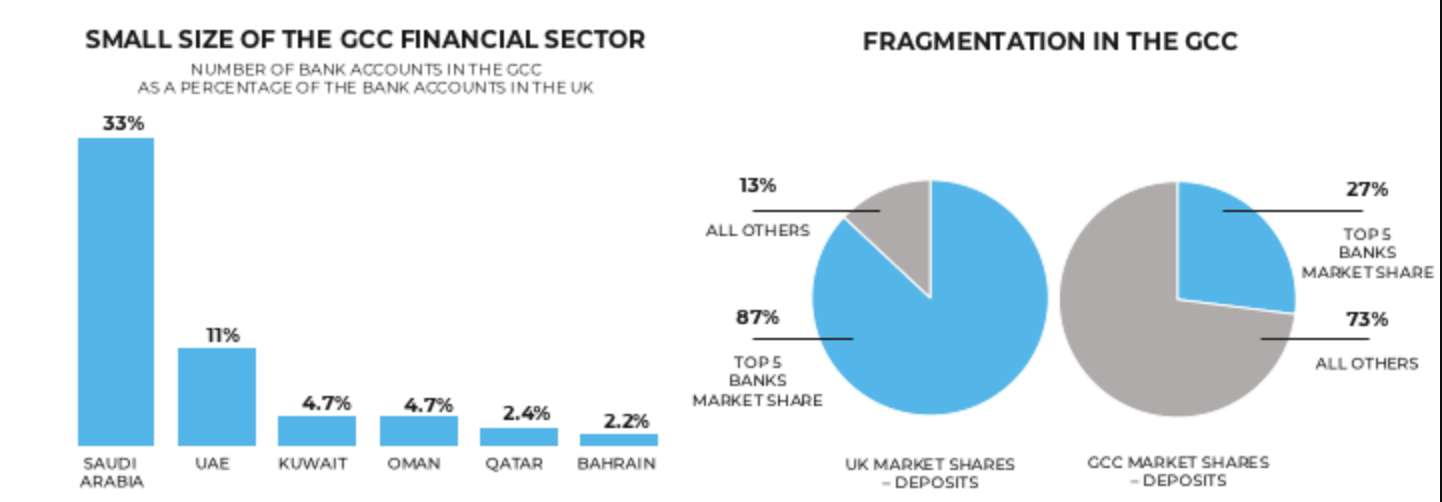FinTech is reshaping the financial system globally but the small and fragmented nature of the GCC banking, insurance and investment sectors puts them at a disadvantage in introducing FinTech innovations in their jurisdictions in an effective and cost-efficient manner.
The FinTech Revolution
“The wave of innovation sweeping through the world of financial technology promises nothing short of revolution…… it will change the nature of money, shake the foundations of central banking and deliver nothing less than a democratic revolution for all who use financial services .…..
FinTech has the potential to deliver more resilient financial infrastructure, more effective trade and settlement, and new ways to encode, share and analyse data….. For the financial sector, these could offer shorter, speedier transaction chains; greater capital efficiency; and stronger operational resilience. For consumers, they could mean more choice; better-targeted services; and keener pricing. For everyone, FinTech may deliver a more inclusive financial system, domestically and globally; with people better connected, more informed and increasingly empowered…..
This would mean revolution, fundamentally re-shaping the financial system….”
Mark Carney, Governor – Bank of England
(selected extracts from the speech at the City of London, Mansion House, London on 16 June 2016)

Wide-ranging FinTech Developments
A complex myriad of FinTech initiatives are underway affecting all segments of finance. Rapid change to the design, delivery and providers of financial services is taking place to meet the needs those services fulfil through six core functions: payments; insurance; deposits & lending; capital raising; investment management; and, market provisioning.
Small and Fragmented GCC Financial Sector
The GCC countries’ financial sectors suffer from two shortcomings – first, the size of the financial sector in individual GCC countries is small by international standards; and second, the financial sector is highly fragmented.
If we take the number of bank accounts as a proxy for the size of a financial sector, the number of bank accounts in the GCC countries represent between 2% and 33% of the total number of the bank accounts in the UK – the combined total of the bank accounts in the six GCC countries represent 58% of the UK market.
Fragmentation is evident from the fact that there are more than 50 listed domestic banks in the GCC competing for the region’s small financial sector, where the top 5 banks hold 27% of the total bank deposits. In comparison, the top 5 banks in the UK hold 87% of the market share in terms of bank deposits.

Implications for the GCC Jurisdictions
-
Lack of Critical Mass Investment: Small size and fragmentation makes it exceptionally difficult for most, other than the largest financial firms in the GCC, to justify making a critical mass investment in FinTech innovation.
-
Disadvantaged Position for JV Arrangements: Each financial firm ends up evaluating the complex myriad of international FinTech initiatives to ascertain their suitability – and remains at a disadvantage when negotiating any JV arrangements with international FinTech firms because of their fragmentation
-
Risk of Being Left Behind: The GCC financial sectors face a serious risk of being left behind due to uneven introduction of FinTech innovation
